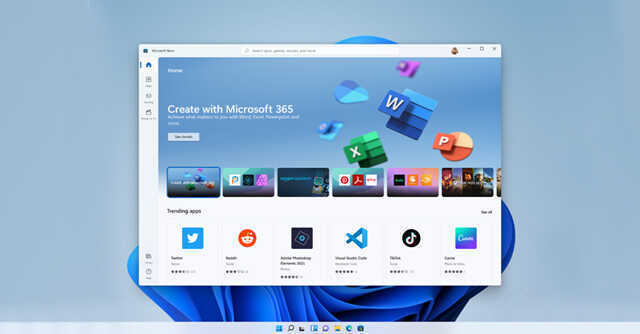
Microsoft launches Windows App SDK to boost app creation for Windows 11


Microsoft has released the first stable version of Windows App SDK (software development kit) on GitHub to allow developers to build native apps for Windows 11 with backward compatibility on Windows 10.
"Windows App SDK 1.0 Stable release is live. The WinAppSDK is focused on empowering developers to build the most productive apps on Windows and we're looking forward to your feedback," Kevin Gallo, Corporate Vice President of the Windows Developer Platform at Microsoft said in a Twitter post.
Formerly known as Project Reunion, Windows App SDK, will not replace the Windows SDK or existing desktop Windows app types such as .NET (including Windows Forms and WPF) and desktop Win32 with C++.

Microsoft claims Windows App SDK will complement these existing tools and app types with a unified set of APIs and tools that can be used in a consistent way by any desktop app on Windows 11.
The objective of the unified SDK is to encourage more developers to build apps for Windows OS and address the paucity of apps on the Windows store.
In a recent blog post, Microsoft has urged Universal Windows Platform (UWP) developers to migrate their own apps to Windows App SDK.

Experts believe the migration to Windows App SDK would herald the end of UWP, which was once considered by the company as the future platform for building all Windows applications. The plan with UWP was to get developers to build apps, which would run on both Windows 8 and Windows Phone.
Microsoft believed Win32 apps (for Windows desktop) would eventually fade away and UWP apps would take their place.
The company's emphasis on building and repackaging apps for UWP and Microsoft Store alienated many developers as mobile apps were too underpowered for enterprise workloads. It also failed to solve the paucity of apps on the Windows store. Microsoft reportedly even paid developers to build apps for UWP.

UWP is now mostly used to create WinCore apps that run on Windows 10, HoloLens, Surface Hub, and IoT devices.
According to Microsoft, Windows App SDK provides a broad set of Windows APIs with implementations that are decoupled from the Windows OS. It also provides a single API surface across desktop app platforms, backward compatibility with Windows 10, an improved runtime environment, and a more frequent release cadence.
